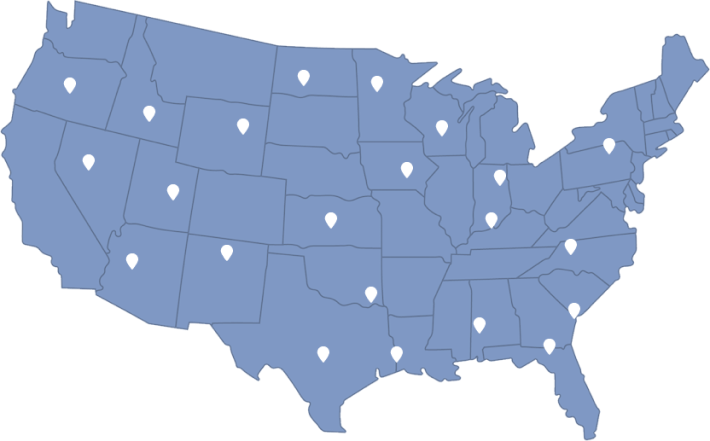Nationwide Nursing Home & Abuse Lawyers
Dedicated legal advocates protecting your loved ones nationwide. When nursing homes break their promise of care, our experienced attorneys fight for the justice your family deserves.

Respiratory infections are one of the leading causes of hospitalization and death among elderly nursing home residents. While some illnesses are unavoidable, many become far more dangerous when facilities fail to detect symptoms early, isolate contagious residents, or provide timely medical treatment.
At The Higgins Firm, we represent families nationwide whose loved ones suffered serious complications—or died—due to respiratory infections that were ignored, mishandled, or allowed to spread. We help you understand what went wrong, who is responsible, and how to move forward.
Respiratory infections can range from mild to life-threatening in older adults. What might be a short-lived illness in a healthy individual can result in pneumonia, sepsis, or respiratory failure in a nursing home resident, especially when the immune system is already compromised.
| Condition | Details & Risks |
| Pneumonia | Bacterial, viral, or aspiration-related; a top cause of death in nursing homes |
| Influenza (Flu) | Easily spreads facility-wide; can escalate to pneumonia or secondary infections |
| Bronchitis | Often viral; causes inflammation, difficulty breathing, and fatigue |
| COVID-19 | Requires isolation, testing, vaccination, and rapid response |
| RSV (Respiratory Syncytial Virus) | Particularly dangerous for seniors; rising in prevalence |
| Aspiration Pneumonia | Caused by inhaling food, drink, or vomit; preventable with proper care |
These illnesses can escalate quickly. Without proper surveillance, oxygen monitoring, and prompt treatment, residents are at high risk of severe complications.
Residents at highest risk of serious respiratory infection include:
These residents require extra vigilance—not excuses.
Staff should be trained to recognize and act on even mild respiratory symptoms. Common signs of infection include:
Delayed treatment—even by hours—can result in hospitalization or death. Facilities that dismiss symptoms as “normal aging” or wait until a resident becomes unresponsive are violating their duty of care.
| Negligent Practice | Risk to Residents |
| Inadequate hand hygiene | Rapid cross-contamination between residents |
| Poor isolation protocols | Facility-wide outbreaks of flu, COVID-19, or RSV |
| Delayed symptom recognition | Infections worsen before treatment begins |
| Understaffing | Fewer checks on respiratory status and oxygen levels |
| Lack of PPE use | Transmission from sick staff to vulnerable residents |
| Missed vaccination campaigns | Higher risk of flu, COVID-19, and pneumonia |
In many facilities, basic infection control failures create the perfect environment for outbreaks to thrive.
Under the Nursing Home Reform Act, facilities must:
Failure to comply with these obligations may result in civil liability, regulatory fines, or wrongful death claims.
Higgins Nursing Home Abuse Lawyers conducts thorough legal and clinical reviews to determine if your loved one’s infection—and its outcome—could have been prevented.
We will:
We don’t just look at what happened—we dig into how it was allowed to happen.
Families may be eligible for compensation for:
Choosing a law firm after a medical crisis isn’t just about legal results—it’s about trust, focus, and follow-through. Families across the country turn to Higgins because we offer more than representation. We offer a partnership rooted in clarity, compassion, and relentless advocacy.
If your loved one suffered from a severe or fatal respiratory infection in a nursing home, we can help determine if neglect played a role. The earlier you reach out, the sooner we can investigate, preserve evidence, and guide you toward answers and accountability.
Dedicated legal advocates protecting your loved ones nationwide. When nursing homes break their promise of care, our experienced attorneys fight for the justice your family deserves.
